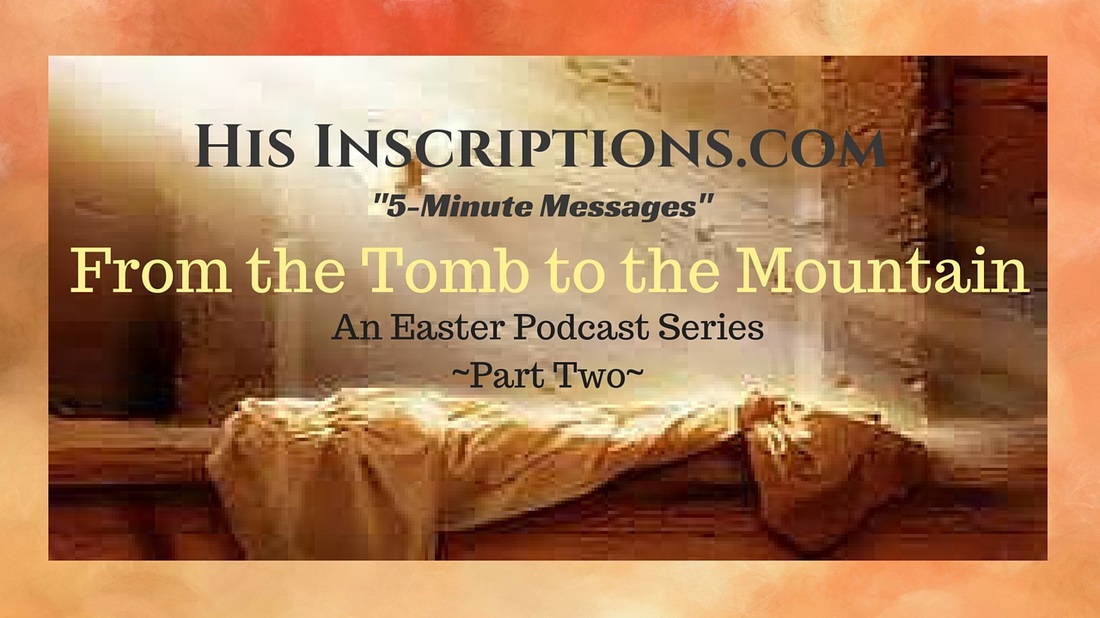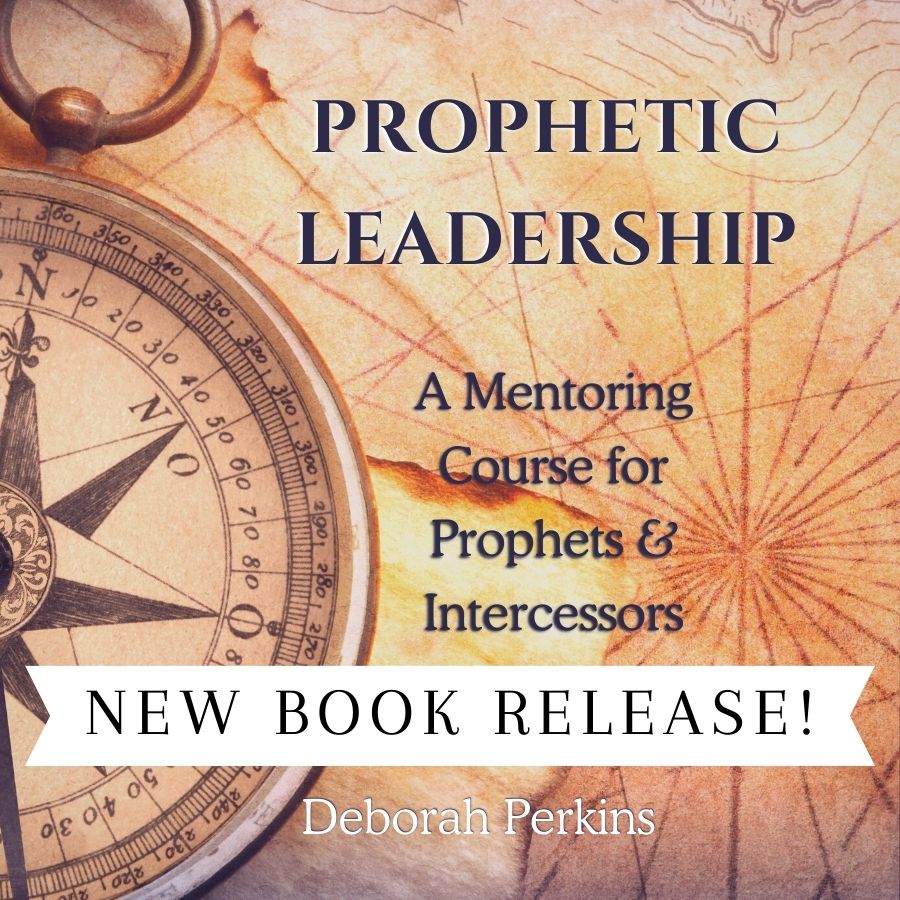|
Today, I want to share with you the third (and final) portion of the Prophetic Word for 2019. This part focuses on the coming harvest and the desire God has for us to use our gifts to build the Kingdom of God. Sharing your gift matters! I pray that this portion of the word for this year will inspire you to collaborate with God and see His promises come to pass in your world! Remember, prophecy is an invitation to partner with God to bring His life-giving Kingdom to earth. Without your participation, that task would be impossible! God has chosen to include you in His harvesting process, to use the unique gifts and talents He gave you, and to give you great joy as you see Him move. Listen carefully to what He's promising here - and even more closely to what He's asking from you. On the day of Pentecost in Acts 2, followers of Jesus were gathered together in Jerusalem to pray. They had no idea what to expect; they only knew what Jesus had told them: “Wait until you are clothed with power from on high” (Luke 24:49). That first church prayer meeting resulted in an outpouring of the Holy Spirit so great that it enabled every person present to hear, see, and experience personally the power of God! That day alone, 3,000 people were saved. Our tendency as modern-day believers is to leave the Pentecost story in the history books. After all, we think, God was just beginning to establish His church; He had to do something amazing like that! Too many years of powerful encounters and answers to prayer have convinced me: that kind of thinking is nothing more than a cop-out. God’s power is alive and well, and the only reason we don’t see more of it is that we don’t pray for it! My life has been powerfully impacted by prayer. The prayers I pray and the prayers others pray for me bear amazing fruit. There are countless stories I could share of God’s faithfulness to answer prayer, but I want to remind you, instead, of God’s stories. Click to watch the 2017 Prophetic Update on You Tube!
(To view or print a copy of the original Prophetic Word for 2017, please click here.)
We are living in a time of great acceleration. In speaking about the coming New Year, God reminded me of scriptures from Amos 9:13, Leviticus 26:5, and Joel 3:18. Through both scripture and some amazing practical confirmations, He is revealing that 2017 is to be a year when “the plowman overtakes the reaper.” Scarcely will your seed be sown before you see the harvest from it! You will have a thought in your heart and almost immediately see the provision of the Lord for it. My father used to have a “personal proverb” he lived by, a saying I heard him repeat many times when I was young. He said: “Keep your expectations low. Don’t trust anybody, and you’ll never be disappointed.” To my little ears, this seemed like a pretty good formula for success; after all, who has not been betrayed or disappointed at some point in their life? His proverb, while it reeked of self-protection, seemed a sure guarantee for a pain-free life. Malachi 3 contains a wonderful promise of abundant blessing for those who "bring all the tithes into the storehouse, that there may be food in My house." (Malachi 3:10, NKJV.) Israel (in context) and the church of God (by extension) are promised that the windows of heaven will open and there will not be enough room to contain the blessing God gives us economically. I know this to be true, and have seen God bless me personally as He has changed me from tightwad to tither! (You can read some of my financial testimonies here.) Our fathers trusted in You; they trusted, and You delivered them. They cried to You, and were delivered; they trusted in You, and were not ashamed.
There I was: eyes closed, hands raised, completely absorbed in the worship and the amazing spiritual atmosphere of the church. A powerful move of God had hit this place, and I was determined to press in and get my healing. Full of faith, I prayed in the Spirit. Others also prayed for me. The Presence of God was so strong in that meeting. It was unlike anything I had ever seen. And then...
It's almost Labor Day, and with the kids - and hubby! - going back to school, preliminary college visits for my oldest (yes, we're already doing that!), football practice for my youngest, and a variety of other interesting developments, I definitely did not have time to "labor" over this week's post! Instead, here is an end-of-summer post "roundup" of 5 new, recent, and older-but-popular posts for you to choose from. I hope you'll take time to relax, grab a tall glass of iced tea, and enjoy reading these carefully-selected articles over the weekend. You'll find a couple of new items here, including a cool Slideshare presentation you can use to pray! And by the way, despite the busyness, I do pray for you, my readers, on a regular basis. Have a new prayer request? Send it to me here. Think a friend would enjoy the posts below? They're free to share. Happy Labor Day! ~Deborah
c. Deborah Perkins / HisInscriptions.com Deborah Perkins is a Christian author and the founder of His Inscriptions, a ministry focused on life-giving communication with God. Through her website, inspired teaching and a weekly blog, Deborah offers discipleship to those who want to grow their relationship with God. A ministry leader for over 25 years, Deborah is an experienced prophetic counselor, marriage mentor, and prayer warrior. She's also fond of her hubby, 3 sons, and dark chocolate - in that order! To purchase her newest Bible Study, click here. Growing up, I remember my parents repeating the phrase, "Knowledge is power." My mother insisted I get a college education because she never had one. My father was a well-educated Wharton grad who ran the family business. My grandmother used to corner me at unsuspecting times and tell me I should become a teacher, so that I'd always have something to fall back on if things "didn't work out." In our family, knowledge was VERY important; it seemed so essential to survival! In the family of God, I've found that knowledge is still seen as power. We Christians relentlessly educate ourselves in the things of God: through conferences, seminars, books, degrees, and videos. We are thirsty for understanding, especially for the knowledge of what God might be saying about us. We don't want to miss anything!
The crucifixion of Christ is a reminder that all of us have to deal with times of death in our lives. We may have to face the death of a loved one, or the death of a dream, or the death of a hope we hold dear. At some point, we all come to our tombs, as Mary did in the resurrection story, and we have to confront the harsh realities of our mortality.
My husband and I attended a wake this week for a young man who died in the prime of his life after a long struggle with addiction. He leaves behind a wife, two brothers, and parents who are also struggling, with questions like: “Why? Why him and not me, Lord?” Despite a wonderful show of support from family and friends, the situation is heartbreaking. No one should have to lose a child, and no words can touch that kind of pain. I took a walk yesterday after visiting the boy’s family. Although I have known his parents for many years, I had met the boy only once, in their church. On that day, the Lord had given me a prophetic word for him, which I shared with his mother and then with him personally. At the time, I did not know the extent of what he was going through. The wonderful thing about prophecy is that no matter how rough life is at the time, a word from God almost always conveys hope. I felt the love of God for this boy and knew that God envisioned good things for him – saw him as complete, competent, and strong in Him. It is hard not to get excited about prophetic words when they come; they are like Jeremiah 29:11 in living color, with specific and personal applications for us. We feel God’s pleasure; we know that He is unquestionably for us. It is like the feeling we have when a teacher gives us a good grade on a test, tells us he believes in us, that we will become something great someday. Something in our soul responds deeply to this kind of encouragement, longs to become that wonderful person that has been described; could that really be me, we wonder? I and this boy’s family believed that what was prophesied to him could really be him. That he could overcome the challenges he faced and turn his life around for the better. I know that his mother has stood her ground spiritually and prayed that word over him for many years since. In fact, when I saw his mother a few weeks ago, she told me how much she had appreciated the word I gave her son, and that she was still believing for those good things God had promised to manifest in her son’s life. Her words greatly encouraged me. But he died. And as I walked, I couldn’t help but ask God, “Why?” Why, when parents who are prayer warriors have battled courageously, do children still fall? Why, when a powerful word is given, do we miss it? Why, when we do wage warfare with the prophecies we are given, do we still sometimes suffer defeat? This is what He said: “Prophecy is not a guarantee; it’s an opportunity.” In other words, when God releases a prophetic word to you, it’s an open door. He lets you take a look at your future from His perspective, and promises that if you walk through that door with Him, He will do everything in His power to back His words to you. There are some things He will do, and there are some things we must do. It’s a bit like the cutting of a covenant: each party has responsibilities to fulfill. When you receive a word, you must ask: what is God's part? What is my part? There are prophetic words for all of us in scripture (See Exodus 19:6 and Revelation 1:6), and there are personal prophecies that we receive through His people as we walk with Him. All are meant to encourage, exhort, and edify us – to help us envision a life of peace and fruitfulness when we do what He is doing. (See John 5:19). Words of correction and direction may also come, with the intended goal of getting us back on track spiritually - always for our good. (For example, Jonah’s prophetic warning to Nineveh didn’t sound very encouraging on the surface. But it resulted in repentance. God’s heart is always for relationship, not destruction.) However, most prophecies are not guarantees. They are conditional, based upon our acceptance of them by faith and by our willingness to yield or to seize the opportunities we’ve been given. I believe many of us are quick to accept prophetic words by faith – we even run after prophetically gifted people to get them – but not all of us act on them. Just as faith without works is dead, so prophecy without action becomes a missed opportunity. We have a part to play. Though we pray, prophesy, disciple, give, and encourage others, the one thing we can never do is take away their right to choose, to make their own decisions based on the promises they are given. Sometimes people choose not to walk with God. Sometimes they walk with God, yet don’t take the steps needed to walk into the better future He invites them to experience while they are here on earth. This is a hard thing to watch from the sidelines, like a dropped catch on the football field or a wrong note in a concert. We cringe inside, we wish it had been different, we wish we could go out and “catch” the ball for them, run the touchdown, correct the mistake. But we can’t. In the end, I must both believe and act on what I receive. This is the way the Kingdom of God operates. Overcoming our own fears, weaknesses, anxieties, or addictions is not an easy task. We need each other more than we care to admit. We need the encouragement that comes through the prophetic gifts, the pastoral gifts, the counseling, teaching and discernment gifts, and all of the other wonderful gifts God has made manifest in His Body. We need each other because without that encouragement, we do make wrong choices sometimes. We’re at war, a war so evil and intense that precious lives are lost along the way. The enemy meant for me to be discouraged when things didn’t go the way I had hoped for this young man. He meant to quench my hope, to make me doubt God and question His wisdom. But he only strengthened my resolve. I cannot choose for another person what he should do. But the losses challenge me to encourage more, to prophesy more, and to pray more, because I see that our resolve must at least match that of the enemy’s. We must remain as committed to life and hope as he is to death and despair. We serve a great God whose plan is unfathomable, whose Kingdom is eternal. In Him, nothing is lost, nothing is wasted. We will see this young man again in heaven. We celebrate all the ways he did acknowledge God. And we will pray, prophesy, disciple, love, and encourage as many others as God leads to us, in the hope that they will choose to accept their prophetic destinies and live the fruitful lives God is calling them to. In Jesus’ Name. Amen.
c. Deborah Perkins / His Inscriptions.
Deborah Perkins is passionate about connecting others with God. She writes about knowing God and hearing His voice at His Inscriptions. To subscribe to her free weekly blog, click here.
One of the most common frustrations believers and church workers express to me is that they feel like they don’t hear from God. “It’s easy for you,” they say, “but God just doesn’t speak to me like that!” It is understandable that an unsaved person might not hear from God, lacking a personal relationship with Him. Yet sincere, seeking Christians can also have trouble being confident in what they are hearing. Hearing God is a skill we develop as we mature in our faith. The Bible tells us that all believers can hear from God. Despite what we may feel, each of us has an innate ability to recognize the voice of God. Jesus’ words in John 10:27 give us biblical confirmation of this truth: My sheep hear My voice, and I know them, and they follow Me.
Yet in the uncomfortable absence of a word from God, how do we go about making good choices in our daily lives? Why is it so difficult to hear Him sometimes, even when we do seek Him?
We find the answer in the context of John 10. It would be easy for a sheep to follow a shepherd if there were no other variables in a sheep’s life. But even in the presence of a shepherd, sheep must still be wary of predators. They have enemies who seek to separate them from their place of closeness to the shepherd. Spiritually, we have an enemy, Satan, whose desire for us not to hear is as great as God’s desire for us to hear. The devil uses any means available to separate and confuse us. It’s his job to distract us enough that we no longer stay in our place of safety and protection within the fold. The farther he pulls us away from our Shepherd, the less clearly we will hear. Enemy InterferenceIf you’ve ever tried to talk to someone in a noisy, crowded room, you know how difficult it can be to focus on your conversation. Now add another person to the mix, someone who joins you and interrupts constantly, and you have a picture of how challenging that one dialogue can become. This kind of situation forces us, in the natural, to sharpen our focus. We move in closer to the speaker. Perhaps we ask the the one who joined us to wait while the speaker finishes his thought. We might even step into another room to continue our conversation uninterrupted. Our goal becomes taking control of our environment by decreasing the background noise. Parents of toddlers know exactly what I’m talking about! When the enemy tries to convince us that we don’t hear from God, our best move is always going to be to move closer, or sharpen our focus on Him. In fact, the Word of God says that when we draw near to God, He also draws near to us. (See James 4:8). Why? Because the One we want to hear is as interested in us hearing Him as we are! 5 Ways to Improve Your HearingSo how do we sharpen our focus spiritually? Here are five keys: 1. Believe that God is always speaking and wants us to hear. Decide once and for all that you are created to hear Him and that He is constantly speaking to you! Read John 10, Psalm 50:1, James 1:5-8, and related scriptures to solidify your faith in this area. Speak the truth: I am able to hear God! 2. Be consistent. The only reason it’s “easier” for some people to hear God is because they have made a commitment to listen on a daily basis. Cultivate a friendship with God and make it easy for Him to join you in conversation, just as you would with a friend. Bring a pen and paper with you into your conversations with God, expecting Him to speak. Write down the scriptures or subtle impressions He gives you as you read His Words. Soon, you will develop a history of hearing from Him. Your journal will help sharpen your focus, and reviewing it will be a source of encouragement to you in the times when you don’t feel as sharp in the Spirit. 3. Bind distractions. Realize that there will always be distractions to hearing. You have the authority in Christ to silence the enemy, just as parent tells a noisy child to be quiet. You must use your authority, or he will continue to interrupt you. The enemy sends two types of noise to hinder us: internal and external.
The remedy for external distractions is to go to your “secret place” and close the door. (See Matthew 6:6). How interesting that Jesus says in John 10:2 that the Shepherd is the one who enters by the door. He is the only one to whom we should open our door in our quiet times. When we make time for Him, he responds in kind. When we step away from the external “noise” of life, we are better able to still ourselves and hear from God.
Sometimes the best way to deal with internal noise is to fill our minds and mouths with something else. Playing worship music you can sing along to is a powerful way to adjust our focus. When worry overshadows our Bible reading, it is time to start reading out loud, praying, or confessing scriptural truths instead. Try listening to biblical teachings on YouTube or the internet. It is almost impossible for our minds to dwell on anxious thoughts when our mouths are busy confessing positive ones! 4. Be committed to fellowship. The more you are involved with fellow believers, the more you will grow in hearing God. When we meet together in home groups and church services, we often begin to see “trends” in what God is saying to His people across the Body. I have heard of Sundays when several pastors in our area spoke (unbeknownst to the others) on the exact same topic. I have also seen God confirm private words from my quiet time in public settings like home groups. Being involved with others helps build our confidence that we are hearing correctly. There is a measure of safety in numbers. 5. Be Bold – Act on what you believe. When all else fails, and you still feel you have not been given a specific answer to your problem, move forward in faith, trusting that the God you serve is big enough to adjust your steps if necessary. Don’t allow the enemy to paralyze you with the fear of doing the wrong thing! Many Christians find it helpful to “follow the path of peace,” since Philippians 4:7 says peace is our guardian. As a general rule, if you have serious or lingering concerns about something, that is not the time to step out. I find it helpful to ask, “does this course of action line up with eternity’s values and beliefs?” God gives each of us unique desires as we serve Him. Making decisions that align with our God-given passions for building His kingdom can be a good place to start. Again, God is more than able to correct us or adjust our direction as needed. ConclusionThe reason Jesus can so confidently say, “My sheep hear My voice” is not because of our ability. No, in fact, as animals go, sheep are pretty dense! But Jesus is confident in God’s ability to guide us, even if we do wander off like dumb sheep at times. We, too, need to have faith in God’s sovereignty - that His voice is able to project above all others to guide us. If God can speak to a Muslim in a dream, He can speak to you. If He can make a donkey prophesy, He can speak to you. If He can convert known persecutors of the faith into committed believers, He can speak to you. Once and for all, renounce Satan’s lie that you don’t hear, and ask the Holy Spirit to turn up the volume on God’s voice!
Deborah Perkins is passionate about connecting others with God. she writes about knowing God and hearing His voice at HisInscriptions.com. Follow her on Twitter or Facebook, or connect with her directly here.
Followers of Jesus have a unique dilemma. From the time of Christ’s resurrection until now, all we have to lead us are words. By words, I mean the words God has spoken to us, whether in Scripture, prophetically, or in the quiet places of our hearts. We follow Him on the basis of His Word, taken on faith, and this can be a challenging task. After all, it is rare that God speaks in an audible voice. He is invisible to us, yet we see Him with the eyes of our hearts. He hosts no seminars and posts no YouTube videos, and yet we hear Him. When we are looking for detailed directions, His words to us might seem primitive or inadequate, too small to do us any real good in our complicated world. Why doesn’t He just tell us what to do, or how to get there? Words are Seeds
The answer lies in a simple analogy, one that Jesus often used to help His disciples understand Him. Words are seeds. When we come to God seeking direction, He gives us what we could call a “packet" of seeds. On this packet is a picture of the finished product, with perhaps a simple description of how to plant the seeds and what the growing time might be for our location.
The seeds might represent a specific promise for our future, or a vision of the provision He intends to supply. They might be a picture of what our “promised land” will look like. It is rare that God gives us a finished garden in bloom in answer to our prayers. He’s much more likely to give us a seed starter pack and ask us to do the sowing (with Adam and Eve as the obvious exception!) Our seed packet might come in the form of a strong desire of the heart that doesn’t go away over time, a specific scripture promise, or a prophecy. It might be a missionary call or a ministry focus. In most cases, others will confirm that they, too, can “see” the type of seeds God has given us. Biblically, it’s a good thing to ask God to confirm our gifts and callings through others. It helps us to stay focused on our personal harvest. A seed will not take root until it is sown. How do we sow word-seeds? With our prayers and our confessions of faith. We agree that the word we have heard is good, and ask God to bring it to pass. We keep speaking in faith ("I'm growing tomatoes this year!") until we see our harvest appear. This agricultural principle is easily understood, yet many of us feel silly "speaking faith" concerning spiritual things when we don't see immediate results. We misinterpret delay as failure, when all the while our seeds are secretly taking root underground. If we watered them faithfully instead, we would be much more productive! We must learn to apply the eternal law of sowing and reaping to our spiritual lives. (See Genesis 8:22 for confirmation). As Bible believers, we have only seeds – or words – to go on. We are all called to be sowers, waterers, and harvesters of His Word at different times. But in all cases, we must act on what we’ve been given, and work as gardeners do to reap our harvest or cultivate our soil. This is an obvious pattern in Scripture, and yet when it comes to our own lives, we struggle. When we see only the same dirt that was in front of us before, we abandon the garden in disgust and blame the seed for its imperfection. We lack the patience and shun the toil of the gardener. Our Hearts are Soil
While the seed packet tells us what the seeds need, it doesn’t tell us anything about the condition of our soil. God gives us something to sow, and leaves the rest in our hands. He expects us to know the condition of our hearts, our circumstances, and all the environmental concerns unique to us. He expects us to fight off the diseases and pests that threaten to destroy our crops. He expects us to gather in the harvest instead of leaving it to wither on the vine.
Gardens, like people, require time and attention to flourish. When all we have are words from God, we must be careful not to despise the dirt that lies directly in front of us. It’s the “dirt” of our lives that must be dug up, weeded, and cultivated before the seeds can be sown to make that garden. Even a heart full of good soil requires constant amelioration through repentance, forgiveness, and healing. If we skip these steps and abandon the work, we will only end up admiring others’ gardens and never growing our own. God may call us to till someone else’s garden for a time, to teach us how to garden ourselves. But it is my firm belief that God has unique promises for each one of us that cannot be realized until we tend to them ourselves. God gives us each the types of seeds we are capable of growing. The Words (or seeds) God gives His people always work. They are heirloom seeds: uncontaminated and having unlimited reproductive potential. Some of us are called to grow fruit trees, others herbs, others still will grow vegetables. Each of us is unique in our Kingdom purpose. Whatever we invest in is for the nourishment of ourselves and those around us. Once we take the steps of digging up our soil, sowing the seeds, and keeping our garden free of weeds, God shows us what to do next. Our seedlings grow, taking on visible shape and form. When we need it, God supplies us with divine “Miracle-Gro:” ™ fresh words of direction or instruction to care for the garden we are creating. Through patient work and renewed understanding, we inherit the promises we first saw on our seed packets. I pray that when all you have are words, you’ll recognize the incredible gift you’ve been given by God. That you’ll see His words as precious, heirloom seeds with the ability to reproduce and bear fruit. Along with that gift, I pray you’ll take to heart the promise God gave Jeremiah: “You have seen well, for I am watching over My Word, to perform it.” (Jeremiah 1:12, NASB). If you accept the challenge of sowing God’s words into good soil, you’re guaranteed to reap a mighty harvest!
c. DeborahPerkins / His Inscriptions
DeborahPerkins is passionate about helping others connect with God. She writes about knowing God and hearing His voice at His Inscriptions. You can follow her onTwitter andFacebook, or to subscribe to her weekly blog,click here.
"The Blessed Life." How eagerly we seek it, and how elusive it can seem! Rare are the times when we actually reach those "ideal moments" we long for in life: sipping a piῆa colada on a tropical beach, taking a year's sabbatical to pursue a passion, or enjoying the luxury of an overflowing bank account! Far more common is the struggle to overcome, the sense that we are barely keeping up. The older I grow, the more I notice the storms. I am like a tree, whose increasing height causes its branches to tremble in greater gales. As an immature shrub I did not notice the weather as much, being close to the ground. As a more mature evergreen, I feel the wind rustle through every branch, shake every leaf, and chill me to the core. I see more, gain greater perspective, and face greater fears as I grow.
True intimacy is a function of time. If we want to know someone well, we must spend quality time with that person. There really is no substitute for time when we are building a relationship that is heart-to-heart.
A by-product of time spent together is trust. Our everyday experiences of life lived in proximity to others teach us who is trustworthy and who is not. We learn who keeps their word and who fails to deliver. In most cases, we choose our closest friends on the basis of their trustworthiness. In the Bible, one Greek word for faith – pistis – is translated “trust,” or “full persuasion.” Jesus tells us in Luke 17:5 that faith (here, “pistis”) the size of a mustard seed can cause mountains to move. When sown, even a tiny seed of faith has great potential for miracles. Yet like all seeds, it must grow. It isn't the size of the seed that matters. It's the nurturing of the seed that's important. How Does Faith Grow?Our relationship with God works the same way. We seed our time into His Presence, He waters us with His Word, and our trust grows. When we magnify those “giants of the faith” in God who seem to produce such impressive results everywhere they go, we are really celebrating those who have developed great trust in God and His Word over time, creating what we call “great faith.” In Christian circles, I think we sometimes complicate things that are actually quite simple. We look at the “faith giants” we know and think to ourselves, “I could never do that / be like that / believe God for that!” We forget that faith is simply trust, and trust is built over time. Biblical giants like David and Elijah began their relationships with God in obscurity, too. Hidden in caves and tested in the wilderness they forged their trust with God in solitude and prayer. During one-on-one time with their Maker, they learned to hear Him, to trust Him, and to know Him. Jesus did the same. A Divine Invitation
There are times when we seek God in peaceful contemplation. But there are also times when God seeks us, driving us to Him in times of dire need. Though we rarely consider them as such, our trials are somewhat like divine invitations to come more deeply into His Presence and get to know Him. What feels like “down” is actually “up.” What presents itself to us as need becomes our anointing – IF we accept the invitation. When there is nothing left for us to hold on to except the Word, we find that we are conformed more closely to His Word. We dig deeper because we simply must find Him, must connect, must receive – or all seems lost. Our Jacobean effort results in blessing. Despite our limp, we have met with God. We know Him. We have heard Him. Leaning on our Beloved, we emerge from our trial on fire: purified yet not consumed by the fire that threatened us. Powerful yet humbled. Radiant yet unaware of His glory streaming from us. We are confident now, sure of an aspect of God’s character we had not been certain of before. We believe we can trust Him - Aha! - we have faith! Faith is not having the solutions to our problems. It is knowing and trusting the One who does. The power to live life and do great things comes to those who believe, trust, and know their God. (See Ephesians 1:17-21; Eph. 3:20-21; 2 Peter 1:3). If we need a miracle in our circumstances, we must spend enough quality time with the Miracle-worker to learn how He operates. There is no other way. Good relationships take time. Perhaps this is one reason why God’s mercies are “new every morning.” It takes a lot of mornings for us to become the faith giants He has called us to be! In mercy, God issues daily invitations to come and get to know Him better. Have you responded to His R.S.V.P.? The only difference between you and a “faith giant” is that the giant plans to respond… every time.
Prayer: Lord, I do want to know You more. I choose to respond joyfully to Your personal invitation to come and be with You. Don’t let me put You off because of my busy schedule. I pray that I would turn to You in every need and trial I have, seeking to know You more. As I do so, help me to locate the power You are releasing to walk through these challenging times. I respond “YES” to Your invitation, every time! With all my heart, I look forward to being with You. Amen.
c. Deborah Perkins/His Inscriptions
Deborah Perkins is passionate about helping others to connect with God.
She writes about knowing God and hearing His voice at HisInscriptions.com. For speaking requests, or to contact her directly, please click here.
Just because you're a Christian doesn't mean you're fearless.
In fact, God tells us not to fear roughly 365 times in the Bible. That's once for every day of the year! Sure, there are some amazing examples of fearless faith out there, from the spies who entered the Promised Land to present-day martyrs facing ISIS. But most of us, even on a good day, battle fear in one form or another. We know that fear is part of the curse (see Leviticus 26:36-37 for an example), and God gives us the ability to overcome our personal fears. But what of the larger-scale fears, the things that threaten to undo not just us, but our communities, our nation, and our world? These things are on the rise as Satan propels the battle between good and evil to a climax. Luke records Jesus's words, saying that men's hearts will fail them "from fear and the expectation of those things which are coming on the earth." (Luke 21:26) Earthquakes, diseases, and famines will be the norm. He says the end times will be full of "fearful sights and great signs from heaven." (Luke 21:11). Those words don't seem very comforting at first glance. Many Christians avoid the end-time prophecies in the Bible, not just because they don't understand them, but because they seem full of "doom and gloom" for a people who should be continually filled with joy and peace! I believe that every word Jesus spoke is still relevant to us today. And as I began to study fear as it relates to current events, I realized that these end-time prophecies are a critical key for us as we overcome our fears about what lies ahead. The reason? A known enemy is easier to defeat than an unknown one. The Genius of Jesus
Most of our fears are irrational, drawing their power from our emotions rather than the facts in front of us. Those of us who have been hurt in certain areas are predisposed to fears in the areas where we were wounded.
I once was horrified to find a drug addict hiding behind his shower curtain, in an apartment a realtor intended to rent to me. For a while after that incident, every time I opened a shower curtain, I did so with trepidation! Statistically, the likelihood of that ever happening again was extremely low. But the fears persisted until I dealt with them.
The genius of Jesus is that He prepares us ahead of time for what is to come. The power of the fear I had about the man in the shower came largely from the element of surprise. What you don't expect alarms you far more than what you can foresee. This is why we prepare a child, for instance, by telling him that the shot at the doctor's will hurt, but only for a minute. We want him to know how it will end and assure him that he will be safe.
In the same way, Jesus tells us that the end times are going to be difficult, but only for a while. He takes great pains to give us details about the tribulations and about what He expects from us as we face them. He gives us specific things to do that will help us feel more peaceful during a chaotic time. Click here for a free, printable download: "10 Things Jesus Wants You to Do in the End Times." Perfect Love Drives Out Fear
Apart from the wisdom of God, we also have the love of God to help us overcome fear. 1 John 4:18 tells us that perfect love casts out fear, because fear has to do with torment, or punishment. In the end times, only those who are living apart from God's ways will face punishment. I know from experience that when we pray and ask God for more of His love, He is eager to comply!
So overcoming fear is a two-pronged approach. We need both the wisdom of God found in Scripture and the experiential knowledge of the love of God in our hearts. Isaiah clarifies this beautifully: "Wisdom and knowledge will be the stability of your times, and the strength of salvation." (Isaiah 33:6). Your testimony of God's love, combined with the strategic wisdom He gives you through His Word, will cause you to overcome any fears you might have about the end times. It will keep you stable when the world is falling apart. Instead of running from Goliath, as the Israelites did, you'll stand and slay your Goliath like David did. You'll be fearless in the face of fear.
c. Deborah Perkins, His Inscriptions.com. All Bible references NKJV unless noted.
Deborah Perkins is a prophetic teacher whose passion is connecting others with God. She writes about knowing God and hearing His voice at His Inscriptions. You can subscribe to her weekly blog for free, follow her on Twitter, or contact her directly here.
What is Jealousy?Jealousy can manifest as at least three kinds of moles: covetousness, misplaced ambition, or mistrust. Let’s study each one so we’ll recognize them when they pop up unexpectedly. 1. Covetousness: The most obvious and widespread form of jealousy is covetousness, prohibited by God in the 10th commandment. (See Exodus 20). Coveting is wishing you had a prettier wife like your best friend. It’s resenting the large house your neighbor built next door – with a chef’s kitchen and custom details throughout. Covetousness lusts after the diamond engagement ring your best friend is flaunting shamelessly. Covetousness is wanting “anything that is your neighbor’s,” according to God. With a definition that broad, covetousness hard to escape! All of us have admired something to the point that lust for that object has subtly taken over in our minds. This is why Jesus says that a man who is “just looking” at another man’s wife has already committed adultery with her in his heart. He is coveting. Covetousness leads to adultery and idolatry, and idolatry leads to death: …One is tempted by one’s own desire, being lured and enticed by it; then, when that desire has conceived, it gives birth to sin,
2. Misplaced ambition: The Bible makes a distinction between ambition and selfish ambition. Galatians 5:20 says selfish ambition is one of the “obvious works of the flesh, along with idolatry, witchcraft, and quarreling. Those who yield to these things do not inherit the kingdom of God. (See Galatians 5:20, NIV or HCSB). The trouble is that selfish ambition is not always as “obvious” as we think it is. Sometimes it is hidden, and God must expose it.
For example, one day I discovered that an old college friend had made it “big” in the business world, with all the books, awards, and positions to go with it. Instead of celebrating her success, my initial “wow” moment quickly morphed into self-pity. Our paths over the last 20 years were radically different. I chose to set my career aside for a time and raise a family. She had worked her way to the top of her industry, and is doing things I’d give my eye teeth to do. In an instant, all the wonderful things I value: time at home with my children, time to pray and write, and a refreshing distance from the pressures of work & ministry, evaporated. Inferiority and regret surrounded me and I bemoaned the years I’d “wasted” as a wife and mother. Sound ridiculous? It is! Once you get over yourself you see the eternal value of what you’ve accomplished by following God’s will for your life. Your walk with God is uniquely your own. My friend’s promotions came at cost, too – a price God might not have wanted me to pay. Until circumstances made this particular “mole” pop up, I didn’t even realize it was there, lurking just under the surface. While selfish ambition is not a godly attribute, ambition for the things of God is something to be desired. The apostle Paul writes: “…we make it our aim (we have as our ambition) to please Him.” (2 Corinthians 5:9, RSV). He says his ambition is to preach the Gospel where Christ is not known, so that he doesn’t build on someone else’s foundation (Romans 15:20). Paul also directs us to “eagerly desire” spiritual gifts such as prophecy; something we could not do without a measure of ambition (1 Corinthians 14). 1 Thessalonians 4 reads “Make it your ambition to lead a quiet life. Mind your own affairs and work with your hands so that you may behave properly toward outsiders and be dependent on no one.” (1 Thess. 4:11). Ambition isn’t wrong. But it needs the right focus.
3. Mistrust: At its heart, jealousy reveals a basic mistrust in the goodness of God. We doubt that God cares as much for us as He does for our neighbor, since our neighbor’s life seems so much better than ours! Doubt turns to unbelief, and unbelief is sin. If we fail to whack this mole immediately, it will only multiply and pop up in other areas of our spiritual lives.
The devil hopes to overrun your mind with moles of mistrust in order to keep you from hearing God. Every step you take on the road to jealousy is a step farther away from intimacy with God. The Kingdom of God operates by faith. When our lives seem to lack the “substance” we desire, faith is the means of obtaining that substance. Jealousy covets. Selfish ambition forcefully takes what it desires. Mistrust fears it is not worthy of God’s blessings. These three things cause us to hide from God because we hurt inside, aching for things that have not manifested yet. Faith, on the other hand, believes in the love of God to provide. Faith trusts in the equal concern of God for all His children. Faith accesses the redeeming power of forgiveness, which restores hope and trust. How Can We Win the Battle Against Jealousy?Within all of us, there is an innate human tendency towards envy and selfish ambition. Doubt and mistrust are seeds Satan planted at the fall of man. We long to be known, heard, and appreciated. Yet as believers we are called to know, hear, and appreciate God above all else. As in every area of our spiritual life, acknowledgement of sin is the first step towards healing. Once we admit we are human and must fight jealousy just like everyone else, we can begin to be proactive about defeating it. God is a strategist. He’s an expert at revealing things hidden in darkness (Daniel 2:22). We can ask Him to expose jealousy’s moles and show us selfish ambition’s ambushes before we get there, so that they won’t get the upper hand. The value of confronting jealousy is that it exposes areas of our lives where we have not yet died to self and embraced God. Instead of being jealous, we can be content to allow God to weave us into the fabric of His masterpiece when He sees fit, and in the places where our true colors will best be displayed. We can celebrate, not covet, the beautiful hues and patterns already knitted together, even when we feel like forgotten balls of yarn left in the basket. We can tame the ugly green monster. We can stop allowing jealousy to destroy our relationships and make it a catalyst for growth in God. c. Deborah Perkins, His Inscriptions
Deborah Perkins is a prophetic teacher whose passion is to connect others with God.
She writes about knowing God and hearing His voice at His Inscriptions. Follow her on Twitter or Facebook, or contact her directly here. Last week I was given a precious gift by a friend in Tennessee, a reader of this blog and one of my strongest supporters. She gave me the gift of time spent with a dear friend relaxing, worshiping, and working together on some projects. What she didn't realize she'd given me was equally important: the gift of perspective. As a wife and mother, I don't travel nearly as much as I used to. Unlike my husband, I actually love the adventure of travel: visiting new places, interacting with different cultures, and experiencing the "flavors" of life lived in other places! So from the moment my plane began soaring above the clouds, my heart was rejuvenated as well. Here's what I discovered. Tennessee, as a "Bible Belt" state, is still proclaiming the Word of God. Everywhere we went, from an inner-city high school graduation, to Walmart, to the Christian-owned Hobby Lobby store, what I noticed was the Word of God, expressed in amazing creativity. The Word is literally "in your face" wherever you turn. Plaques and trendy chalkboard artwork with Bible verses line the shelves of even mainstream stores. A local family whose home I visited makes no effort to hide their faith; it is evident the moment you walk in the door. During a high school ceremony, I heard both ranking Tennessee politicians and local teachers and students pray and cite the Word as they spoke to the graduating class. The choral selection? A rendition of Numbers 6:24, which in case you haven't read lately, is the Aaronic blessing over Israel: The Lord bless you and keep you;
It was beautiful. After several days of experiencing these constant public proclamations of the Word, I was feeling incredibly encouraged. How refreshing! It reminded me of Moses' instructions in Deuteronomy:
These words which I command you today shall be in your heart.
Comparing Tennessee to my home state, where a simple prayer by a student is outlawed and transgender bathrooms might soon become the norm, I almost didn't want to return home! New England suddenly seemed very dark to me. I had gained some perspective.
A Religious Spirit?
I did, of course, return home to my wonderful family, and know that I am called to New England for ministry purposes. As I shared my news of the trip with a fellow New Englander, however, their reaction was to say: "Oh, all that public display of Christ down South is just a religious spirit. It doesn't mean anything."
Well, apart from knocking the wind out of my sails and quickly deflating any joy I had experienced, this person missed a fundamental truth that Paul brings out in Philippians. Paul writes: "What does it matter? Just this, that Christ is proclaimed in every way, whether out of false motives or true; and in that I rejoice." (Philippians 1:18; see also previous verses). It is true that some proclaim Christ insincerely or from selfish ambition, while others proclaim Him out of love. It is not our job to decide who is sincere and who is not. Our job, according to Jesus in Matthew 28, is to simply make Him known, and to keep the Word prominent in our lives. The perspective I gained in the South encouraged me to proclaim Him even more loudly in the North. A Southerner can just as easily say that New England is bound by an intellectual spirit which darkens the light of Christ in us. Rarely do I enter a New England home to find "PDA's" (Public Displays of Affection) for Christ! We are more likely to boast about our impressive array of educational institutions or big-city job opportunities than about our Christianity. I became motivated to turn up the "dimmer switch" on my faith. Dial it up. Light up the room. Make a greater effort to inspire instead of retire. We sorely need more light here, lest the long, wintry days and spiritual darkness overwhelm us. As a local pastor often quips, "When you love something, it shows!" The apostle Paul was also confined for a time, far from the sunny green pastures of Tennessee! Yet the letters written from his jail cell impacted more people than he ever dreamed of reaching in his freedom. The darkness of his situation did not hinder him from proclaiming Christ. His limitations became the source of his greatest ministry. It may be easier to be a Christian down South, where everyone agrees with you. It's certainly sunnier and warmer, and maybe that's why many New Englanders can't wait to go South! The truth is, though, that the light of God already in you is warm enough and sunny enough to radiate a significant amount of heat, no matter where you live. I'm choosing to pursue an assignment to bring His light into what seems like a much darker place at the moment. What will you do? Prayer Challenge: Instead of being envious of others' situations, ask God to give you perspective on your situation. Are you hiding the light that is in you, for fear of offending someone? Has being "politically correct" become more of the norm for you than being "biblically correct?" Ask God to show you what you can do to put your love for Him on display! Will you be mocked or misinterpreted as "religious?" Maybe. But the wonderful thing is that you might just encourage somebody. I'll be praying for you, that your future shines more brightly than your past. c. Deborah Perkins, 2015
Deborah Perkins is passionate about helping people connect with God. She writes about knowing God and hearing His voice at His Inscriptions. To contact her directly, or to send a prayer request, click here.
Sometimes we go through a series of "unfortunate events," as Harry Potter fans would call them, which seem to suck the wind right out of our sails and leave us almost dead in the water. Our beautiful day of smooth sailing suddenly darkens, and we notice ominous storm clouds all around us. The reality of our situation hits us hard: here we are - fools! - in the middle of the sea, without any land in sight, and completely at the mercy of the storm. What were we thinking? How on earth are we going to get out of this? Sound - the very idea of it - has always fascinated me. I grew up not knowing there were certain sounds, like the sound of birds, or machines, or the tick-tock of a clock. I heard only in part, because of deafness. Childhood nerve damage to my ears left me hearing only the loudest of noises, or those closest in proximity to me. I did not know that some sounds even existed until, in fourth grade, I was given hearing aids. The shock of sound alarmed me beyond belief. The moment an audiologist turned up the volume for me, I screamed. Suddenly, there was sound, and a lot of it! An air conditioner outside the window, humming noisily, made me jump out of the chair I was sitting in. I remember thinking it was the hum of an aircraft invasion! Refrigerators make noise - did you know that? And birds, mice, all of God's creation has something to say - if you can hear it. Heaven is like this, too. Not to alarm us, of course, but heaven is a noisy place! John gives us amazing descriptions of the sounds of heaven in Revelation. As one deeply intimate with the Lord, John was given access to sights and sounds that most humans will never see or hear. And it all started with sound. Look at the first Pentecost. The disciples (including John) were gathered in an upper room, waiting for a promised encounter with God. Acts 2 says that "Suddenly, there came a SOUND from heaven, as of a rushing mighty wind, and it filled the whole house where they were sitting." (Acts 2:2). I am certain that the noise of this whirlwind made at least some of the disciples jump out of their seats, as I did when I could first hear! These believers were filled with the Holy Spirit and began to speak "as the Spirit gave them utterance." (Acts 2:4) What a powerful initiation to hearing the sounds of heaven! Sound Begets SpeechFrom the moment the Holy Spirit opened the ears of the disciples, He also inspired them to speak the gospel. The Holy Spirit, whose job it is to amplify the sounds of heaven in our ears, filled the first believers with language, not just hearing, so that thousands of others heard about God in their own languages and became believers themselves. The amplification of the sounds of heaven brought the multiplication of men into the Kingdom of God. And so it still is with us today. If you are listening, you will also be speaking. And speaking - telling others the Good News of the Gospel - is the primary call and commission of every believer. (See Matthew 28:18). But the reverse is also true: if we are NOT listening, we will not be hearing either. If we do not hear the Words of God, we will not be saved. If believers do not listen daily for the sounds of heaven, those specific and personal instructions He wants to give us, we will not be led by the Spirit. And if we don't know where we are supposed to be or what He wants us to be doing, we will not be living and sharing the testimonies He wants to give us, which will lead others to hear more about Him. How then shall they believe in Him of whom John's Experience
What does heaven sound like? John's experience with the incredible sounds and sights of heaven began with the sound of a trumpet: "I was in the Spirit on the Lord's Day, and I heard behind me a loud voice, as of a trumpet, saying: I am the Alpha and the Omega...write what you see in a book and send it to the churches..." (Revelation 1:10-11) This would be the first of over 20 times John would hear loud voices, thunderings, earthquakes, music, loud cries of angels, harps, and worship.
In contrast, only once are we told (in Revelation 8) that "there was silence in heaven for about half an hour." (Revelation 8:1). This coincided with the opening of the seventh seal. (Seven is the number biblically connected with rest and sabbaths).
The noises and voices John hears take him successively higher in the heavenly realm, until at last he is able to see the Bride of Christ and the New Jerusalem, the final destiny of all believers. Yet even in his first glimpse of the throne of God, John writes that "...from the throne proceeded lightnings, thunderings and voices." (Rev 4:5) The seven Spirits of God were burning like lamps before the throne. He also sees living creatures and elders worshiping day and night, speaking of the holiness of God. Their praise never ceases; they do not rest.
What can we gain from this? The knowledge that the closer we get to the throne of God, the more constant our speaking will be. The Spirit of God mysteriously abides both within us and near to the throne. What He hears, He speaks to us. What we hear, we then speak, preach, prophesy, and sing. As we draw as near to God as we can, we will be compelled, as these elders are, to speak of Him constantly, to worship Him 24/7, and to yield to the inspiration of the Spirit within us. Jesus cried aloud when He gave up His Spirit and when He summoned Lazarus from the tomb. Angels cry loudly and trumpet the proclamations of God. Man cries out in his prayers of distress or decree. All are normal responses to the pneuma, or the breath, of the Spirit of God in us. Hearing from God compels us to speak. Sharing what we hear will cause others to hear Him also. Hearing and speech are intricately linked in both the natural and spiritual realms. Don't let a deaf and dumb spirit silence you. Listen for the loud sounds of heaven, and then speak in such a way that you'll compel others to hear heaven, too.
You who make mention of the Lord, do not keep silent,
and give Him no rest till He establishes and till He makes Jerusalem a praise in the earth. ~ Isaiah 62:7
What makes one person thrive while another barely survives? Why do some people seem to live almost effortlessly, while others go through life hanging on by their fingernails? Even Christians are not exempt. We cling to the Gospel's wonderful hope of heaven. But is that all there is? What about the problems in this present life? What do I do between now and eternity? I believe there is a key difference between survivors and those who thrive in life. Or for Christians, between the survivors and the revivers! It's not just a difference between rich and poor. It's actually a different state of mind. To describe this, let's look at the law of the jungle. There's a big lie that the devil has promoted among God's people since the beginning of time. It is so big, and so successful, that his strategy really has not changed much over the years. From Genesis to Revelation and right into the present day, Satan and his minions have invested untold amounts of time and energy into marketing this lie. Do you know what it is? It is this: "Did God really say...?"
What is happening right now in Boston is amazingly prophetic. Just two days ago, I was writing about revival after visiting John Adams' rare books collection at the Boston Public Library. (To see that post, entitled "Step Into Your New World", click here). What I did not know was that the same day I was publishing my article, archivist Pam Hatchfield was prying open a 220-year-old time capsule at the MFA, one that had been embedded in the State House's cornerstone by Sam Adams and Paul Revere in 1795. On July 4, 1795, fifteen white horses - one for each state of our union - had pulled this cornerstone and time capsule through the streets of Boston for the dedication ceremony.
Inside the box (which took nearly 7 hours to open), were artifacts from the dedication of the Massachusetts State House on the 20th anniversary of our independence. A silver plate, probably crafted by Paul Revere, displays an inscription for the building's dedication and names Sam Adams, Paul Revere, and Revolutionary War Colonel William Scollay. (See photo above). 23 coins, including one in a half-penny denomination, and a medal of George Washington are also part of the capsule. One of our family's favorite movies to watch during the holiday season is Home Alone. You're no doubt familiar with the storyline: 8-year-old Kevin is left behind by his rather large (and obnoxious) family when they travel to France, and ends up defending his upper-middle-class home from a dynamic robber-duo named the "Wet Bandits." Two hours of hilarious pranks and traps set by this tyke end with a Christmas day arrest of the bandits and a much-matured little boy. What we love about this movie is the creative ingenuity of a child that outwits the "professionals." Using only the resources he has at hand, most of them commonplace in an 8-year-old's world, he masterminds a strategy that is so unexpected to the pros, it almost has to succeed! From the ice on the stairs to the toy cars in the hall, we watch Kevin outwit and - just barely - outlast the enemies, until he is reunited with his family. The cops don't show up until the boy has done his job protecting his home. God's Version Speaking to me yet again in His unusual way, God drew my attention this week to His "Home Alone" story in the Bible. Luke puts it just after the "traditional" Christmas readings of the birth of Jesus, in chapter two: Now His parents went to Jerusalem every year at the Feast of the Passover. And when he was twelve years old, they went up according to custom. And when the feast was ended, as they were returning, the boy Jesus stayed behind in Jerusalem. His parents did not know it, but supposing him to be in the group they went a day's journey, but then they began to search for him among their relatives and acquaintances, and when they did not find him, they returned to Jerusalem, searching for him. After three days they found him in the temple, sitting among the teachers, listening to them and asking them questions. And all who heard him were amazed at his understanding and his answers. And when his parents saw him, they were astonished. And his mother said to him, “Son, why have you treated us so? Behold, your father and I have been searching for you in great distress.” And he said to them, “Why were you looking for me? Did you not know that I must be in my Father's house?” And they did not understand the saying that he spoke to them. And he went down with them and came to Nazareth and was submissive to them. And his mother treasured up all these things in her heart. And Jesus increased in wisdom and in stature and in favor with God and man. Luke 2:41-52, ESV Jesus was a boy of twelve who, like Kevin, was left behind in His Father's house. Three full days went by before his parents returned to find Him quite peacefully settled in His temple, debating with the scholars. Like Kevin, Luke tells us he grew and matured after this, due in part, perhaps, to engaging His "enemies" (the religious leaders) who would later persecute him. In the movie, Kevin listened to the robbers and learned the very hour they planned to rob his family's house, so he had time to prepare a strategy that would defeat them. In Luke's text, Jesus is said to have both "listened" and "asked questions" of His future tormentors. Their dialogue gave Him valuable insights concerning the scribes and Pharisees. It was these very same leaders whom He would "trap" with His own questions later in life. The boy Jesus grew, matured, and learned how to defend His Father's house - the temple - from those would would defile it. His strategies were different; He used words, not toys, as His traps, but he successfully enacted His plan to restore to God what was stolen by the enemy. Bringing It Home Here's what's interesting about these stories. I believe God regularly gives us "home alone" moments in life, too. We are never completely alone, of course, but God gives us moments when our normal support systems - friends, family, or even the voice of God Himself - disappear for various reasons. We come face to face with spiritual or natural enemy forces, and we learn to defend what we love from predators who would rob us. Forced to draw upon inner strength and the resources we have at hand, we learn to stand our ground and fight back. Like David the Psalmist, we may find that using the standard "grownup armor" isn't the best strategy. We learn that the resources most familiar to us at the time can be effective, no matter what stage of life we are in. Our unique gifts and talents are surprisingly adequate, in God, to overcome our enemy. In fact, it is what enemy is not expecting from us - like our slingshots - that yield the greatest results! Be Who You Are! My hope is that this simple analogy will encourage you to be who you are now at this time in God, and not to belittle yourself because your faith or your gifts are too small. The truth is, none of us is fully mature yet. The wonderful thing about God is that He takes our childlike efforts and multiplies their effectiveness with His power. As my spiritual dad always says, "We win!" Are you ready to use your unique abilities to defend the Kingdom of God in your life? When you use your gifts, you do real and lasting damage to the enemy. Your confessions of faith set angels in motion. You overcome your fears and grow up a bit in the process. And God is gonna be impressed with your bravery and zeal for His house. I guarantee it! c.Deborah Perkins, 2014  Deborah Perkins is passionate about helping others connect with God. She writes about knowing God and hearing His voice at HisInscriptions.com. Follow Deborah on Twitter@DeborahSPerkins, or click here to subscribe to her blog. |
Free Link to the Subscriber Resource Library when you join His Inscriptions!
About
Deborah Perkins Categories
All
Archives
June 2024
AuthorA severe hearing loss from childhood caused Deborah Perkins to develop what she now calls her secret weapon: tuning in to God's voice. A Wellesley College graduate and an award-winning writer, Deborah is now a wife and mother of 3 boys. Deborah has devoted over 25 years to professional and lay Christian ministry in New England and beyond. Her passion is inspiring people to cultivate greater intimacy with God. |










































 RSS Feed
RSS Feed






